Unlike most other languages, handwriting in Chinese can be regarded as a separate skill. Learning to write by hand is not easy; learning to write well is even harder. In an earlier article, I discussed handwriting in details, including how to improve it as a student.
How to improve your handwriting in Chinese
I have collected more than thirty examples of handwriting in Chinese, most of them from students of different ages from various countries across the world. I also gather some examples from native speakers to show as a reference.
36 samples of Chinese handwriting from students and native speakers
The examples below are presented roughly in the order of time spent learning the language, with beginners at the start and native speakers at the very end. Counting study time in years can be very misleading, but since there is no better way of sorting the samples, I chose to do that anyway.
The purpose of this article is not to make a systematic study of student handwriting, although that would be interesting. Apart from time spent learning, another important factor is what the student’s writing looks like in her native language. I have seen enough student handwriting to feel confident when I say that there’s a lot of positive transfer going on, so someone who writes neatly in their native language are likely to write neatly in Chinese too. Beginners of this kind might write neatly but with incorrect strokes and so on, but penmanship still carries over to learning Chinese.
Speaking of penmanship, it should be mentioned that there is probably a strong selection bias at work here. While not all who submitted their handwriting write well, I think it’s safe to assume that people who like handwriting are more likely to have submitted photos of their handwriting when I asked for it. In other words, the average student probably writes worse than the below photos show.
Chinese handwriting from 36 people, using exactly the same tex
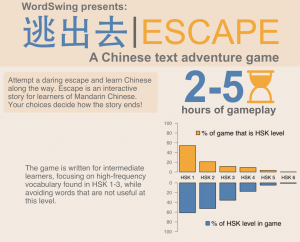 Here’s the text that I asked people to write by hand. It’s the first paragraph in the text adventure game Escape:
Here’s the text that I asked people to write by hand. It’s the first paragraph in the text adventure game Escape:
Escape: A text adventure game for Chinese learners
Simplified Chinese:
你被关在一个小房间里。你并不记得发生了什么,也不知道为什么被关在这里。你以前从房门的窗口那儿得到食物,但是你用力敲门或者大叫都没有用。你决定一定要逃跑,要不然情况可能会变更不好。
Traditional Chinese:
你被關在一個小房間裡。你並不記得發生了什麼,也不知道為什麼被關在這裡。你以前從房門的窗口那兒得到食物,但是你用力敲門或者大叫都沒有用。你決定一定要逃跑,要不然情況可能會變更不好。
A big thank you to everyone who contributed!
Chinese handwriting after a year of studying (or less)
The first submission comes from the US, and also include some information about the student. I collected some submissions years ago, so “since the beginning of 2016” actually means less than a year of studying!
August from Suriname submitted the below sample. He’s 71 and has studied Chinese for one year.
Thomas Walker on Twitter writes: “Here is my effort. Been studying Chinese for about 8 months. Your site has been a massive help, keep up the good work!”
Chinese handwriting after studying between one and five years
A student from the US sent in the below photo of his handwriting, saying that he’s 51 years old and has been learning Chinese for a little more than one year.
This is from a 22-year-old Belgian student. She has been studying Chinese for little more than a year:
The next submission is from a 27-year-old Bulgarian student who has studied Chinese for three semesters in Wuhan:
From @fenma on Twtitter: “two years, self, no class, no visit, HSK3”:
A student from France submitted the following sample, saying “I’m around HSK3, with two years living in China where I self practiced writing despite everybody telling me it’s useless (it’s not; it was super useful every single day, whether teaching my Chinese pupils or writing some unknown OCR resistant character in the street in Pleco). I would practice every day with a cheap calligraphy marker (to force myself to write slowly and purposefully; the difference with using a pen/pencil is like night and day, for learning purposes) in a 10RMB kids hanzi practice book bought in Carrefour and I could totally feel the difference very quickly. I used a pen and wrote as fast as I could to give you something a bit more realistic.”
Next is a sample from a Peruvian student. She’s 24 and has studied Chinese for roughly three years:
The last sample in this category comes from 35-year-old Norwegian, who has studied four years of Chinese, mostly self-studying:
Chinese handwriting after having studied for five to ten years
Dr. Chuck on Twitter writes: “I haven’t tried learning how to speak it yet, but I’ve studied the traditional writing for fun in my spare time over the past 5 years. My closet is a graveyard of graph paper!”
Joey on Twitter writes: “I’ve been studying for a little over 5 years now. Hope this helps!”
MissFitti on Twitter writes: “I have been learning Mandarin for my BA and MA in Italy and I am now teaching it at Secondary in England. 5 years at uni in total, and lived in china for 1 year and 6 months :)”
A student from Scotland sent me the below sample of his handwriting. He says he’s been working in China for over five years, and have studied Chinese, but had very little teaching on how to write characters. Just like the rest of us, he mainly uses phones and computer for writing Chinese:
A student from the US submitted the below photo with this comment: “I have been studying, and I use the word studying loosely, Chinese for about 5-6 years. […] My reading skills far outweigh my listing, speaking, and as you can see from my attached text, writing skills. […] Thanks for all you do. I truly appreciate you.”
Brandon Rivington on Twitter writes: “I tried to make it as natural as possible. I’ve been studying Chinese for about 7 years. I look forward to reading the article!”
The next sample comes from a 36-year-old student from Spain, who has learnt Chinese for about nine years:
And another submission from Spain, from someone who is two years younger, but has also studied for about nine years:
A Polish student submitted the below photo of his handwriting and said: “I’m 24 years old and I’ve been learning Chinese for about 9 years. 3 years ago I passed HSK5 and I’m planning to pass HSK6 the next year.”
Chinese handwriting after studying for ten years or more
Anna K. on Twitter writes: “Studied Chinese 10+ years, taught it one year. Thanks for your excellent blog and work!”
Margaret from the UK has been studying for 12 years and her handwriting looks like this:

Here’s a submission from Melbourne, Australia (information included). She has been learning for 12 years.
TranslationRaven writes on Twitter: “Studied Chinese for 12 years in school, didn’t read or write for 8 years after that. Returned to Asia and got my teaching diploma in Chinese after those 8 years. Not sure how I’d categorize myself, haha”
Miriam from Germany submitted the below sample:
David Hull 胡大衛 on Twitter writes: “Always been very self-conscious about my sloppy handwriting. Picked up Chinese late- in my mid 20s. Studied in PRC and US. I haven’t been writing by hand for years (except on the blackboard). I’m an asst Prof of Chinese now. Started in the army program at the Defense Language Institute in ’96 (we didn’t do much writing at all). I didn’t have a chance to formally study again until ’01, and by then it was almost all typed.”
The last sample in this category comes from the US. She has 26 years of formal and informal studying behind her:
Chinese handwriting from native speakers
Now, let’s move on to native speakers. For people who find some of these difficult to read, please check this article for some advice on how to proceed: Learning to read handwritten Chinese
A student, who grew up speaking Chinese with her mother and took a few years of Chinese in school, but then forgot most about it, sent in the following sample. She also writes that “this may be the most I’ve ever written by hand, I do everything digitally now, I practice my writing skills by writing to my mother on my cellphone.”
Vicky Lee on Twitter writes: “I am a little bit shamed to write the Chinese like this? It is only recognizable but far from being beautiful.”
Female native speaker, 30 years old:
This is from a 22-year-old native speaker (male):
A native speaker from China, submitted this through Facebook Age ~50. “You are very appreciated to promote Chinese culture.”
A native speaker who grew up in Malaysia, now in her fifties:
And another native speaker from Beijing (male, around 50):
Here’s another native speaker who teaches English near Shanghai (age unknown):
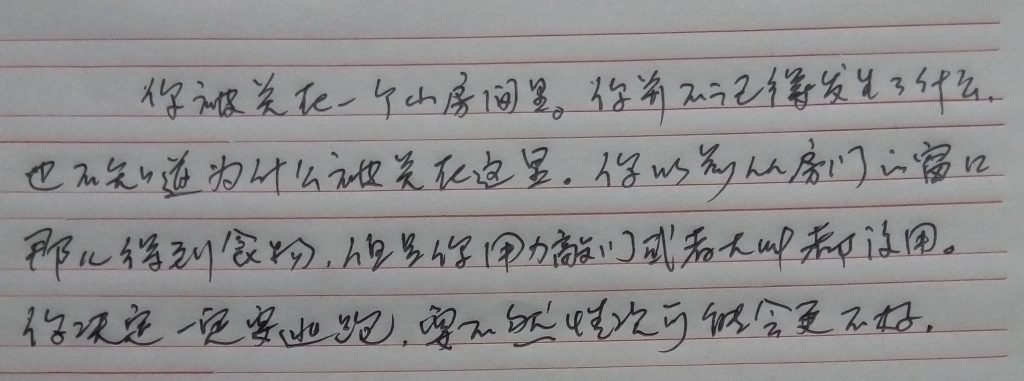
And another one, this time from Guangzhou, 45 years old:
Native speaker, female, age around 50:
Native speaker, age unknown:
And an extra submission, provided after the article was published, so actually number 37: “Age 28, live in China mainland, written by Lamy Safari”, originally posted here.
Conclusion: Chinese handwriting in the 21st century
I’m not sure if any conclusion can be drawn from the samples shown above; that wasn’t really the intention. If you have some thoughts you want to share after checking them out, please leave a comment!
How good your handwriting is depends on many things, including how good your penmanship is in your native language. Time spent practising and how much you care are two other important factors. If you don’t think your handwriting is very good because you haven’t practised enough, that’s nothing to be ashamed of. In this electronic era, writing neatly by hand is not an essential skill for most students.
For those of you who want to improve your handwriting, I conclude here by linking to the previous article:
https://www.hackingchinese.com/how-to-improve-your-chinese-handwriting/
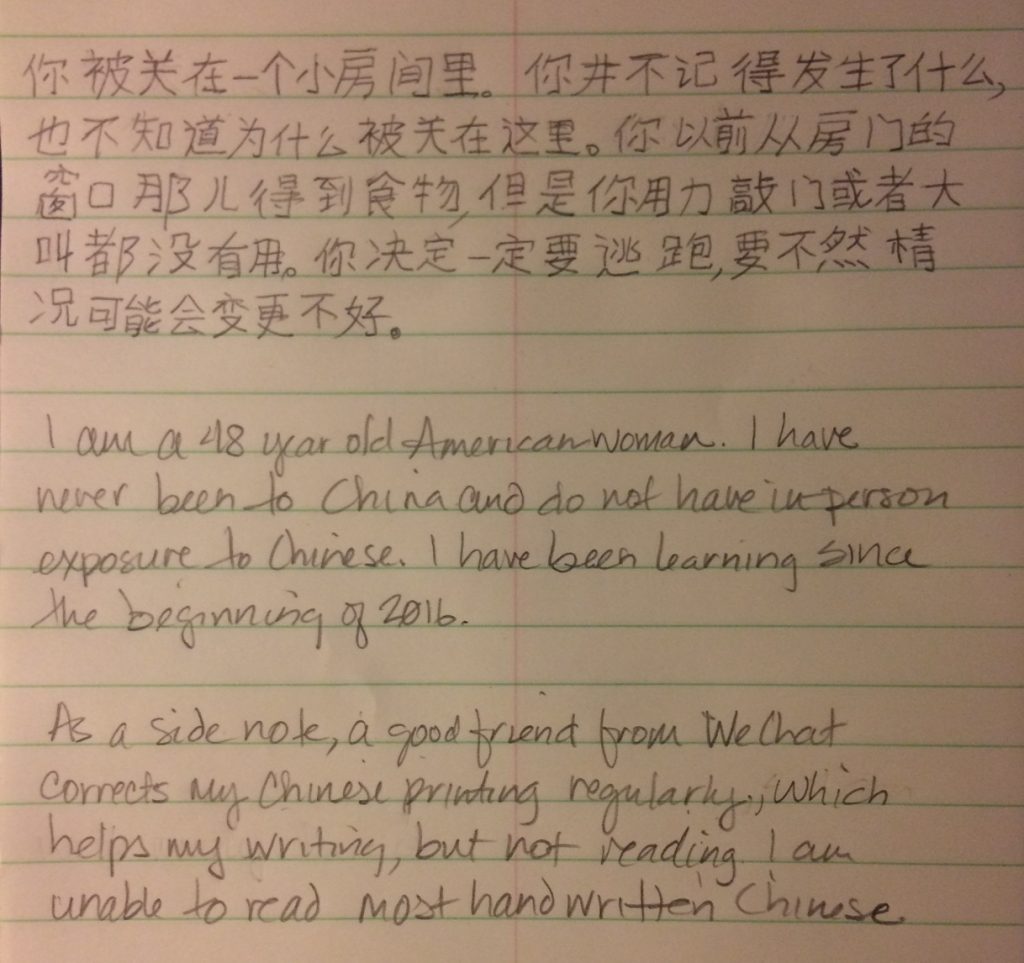
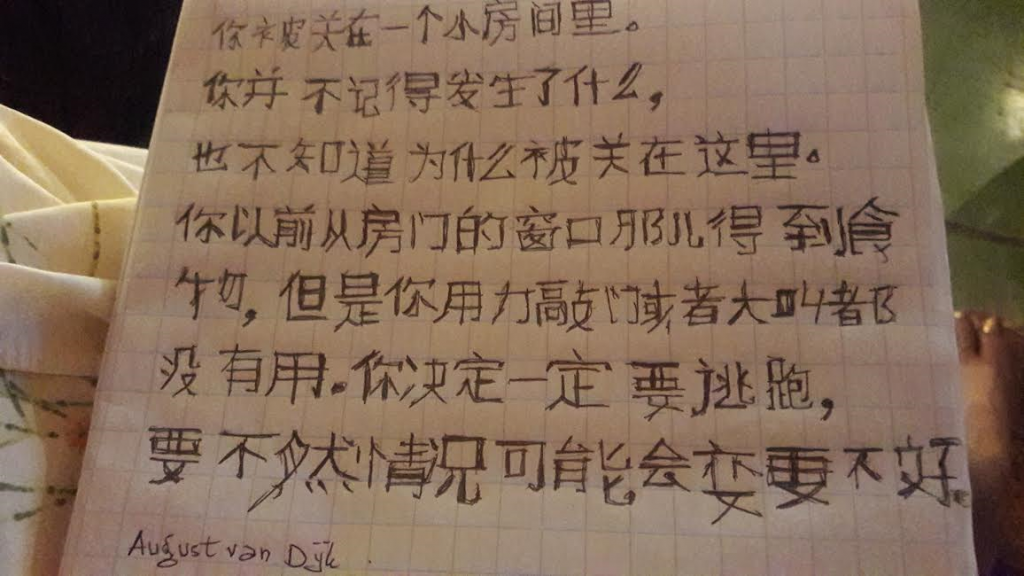
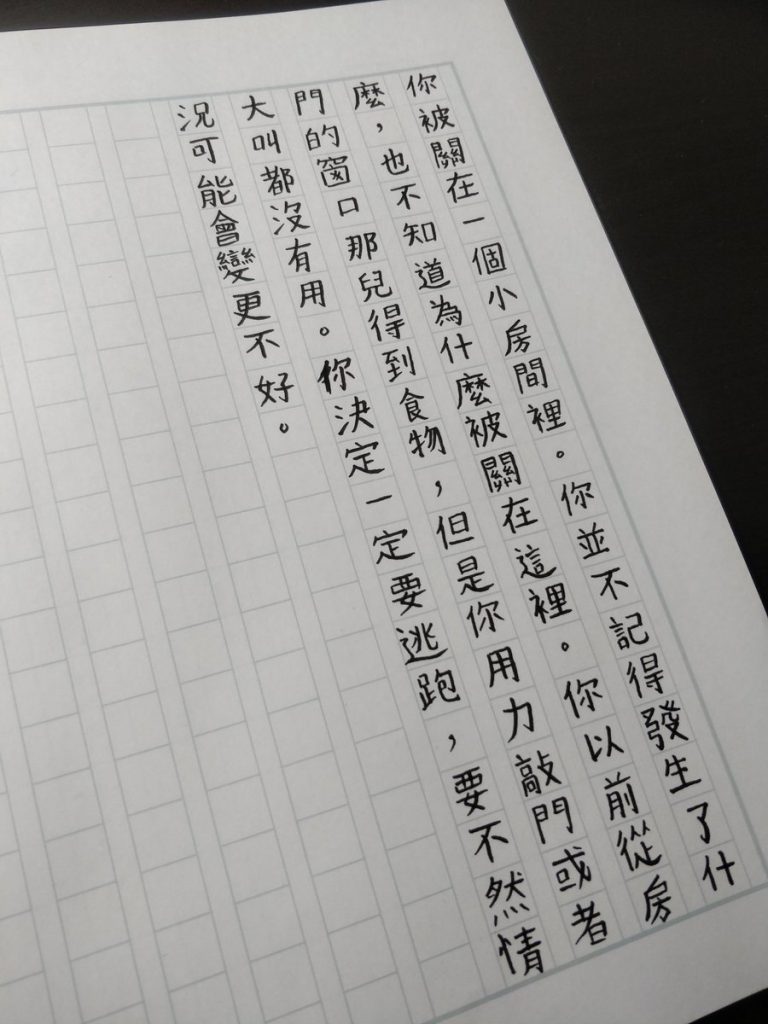

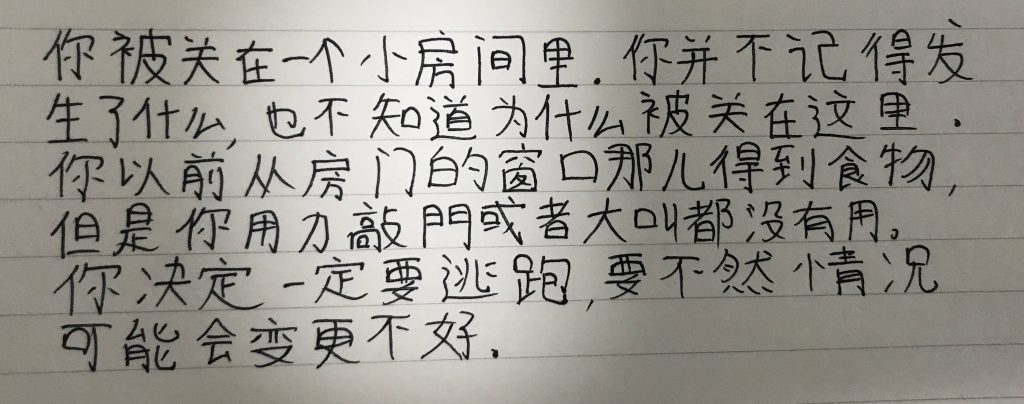

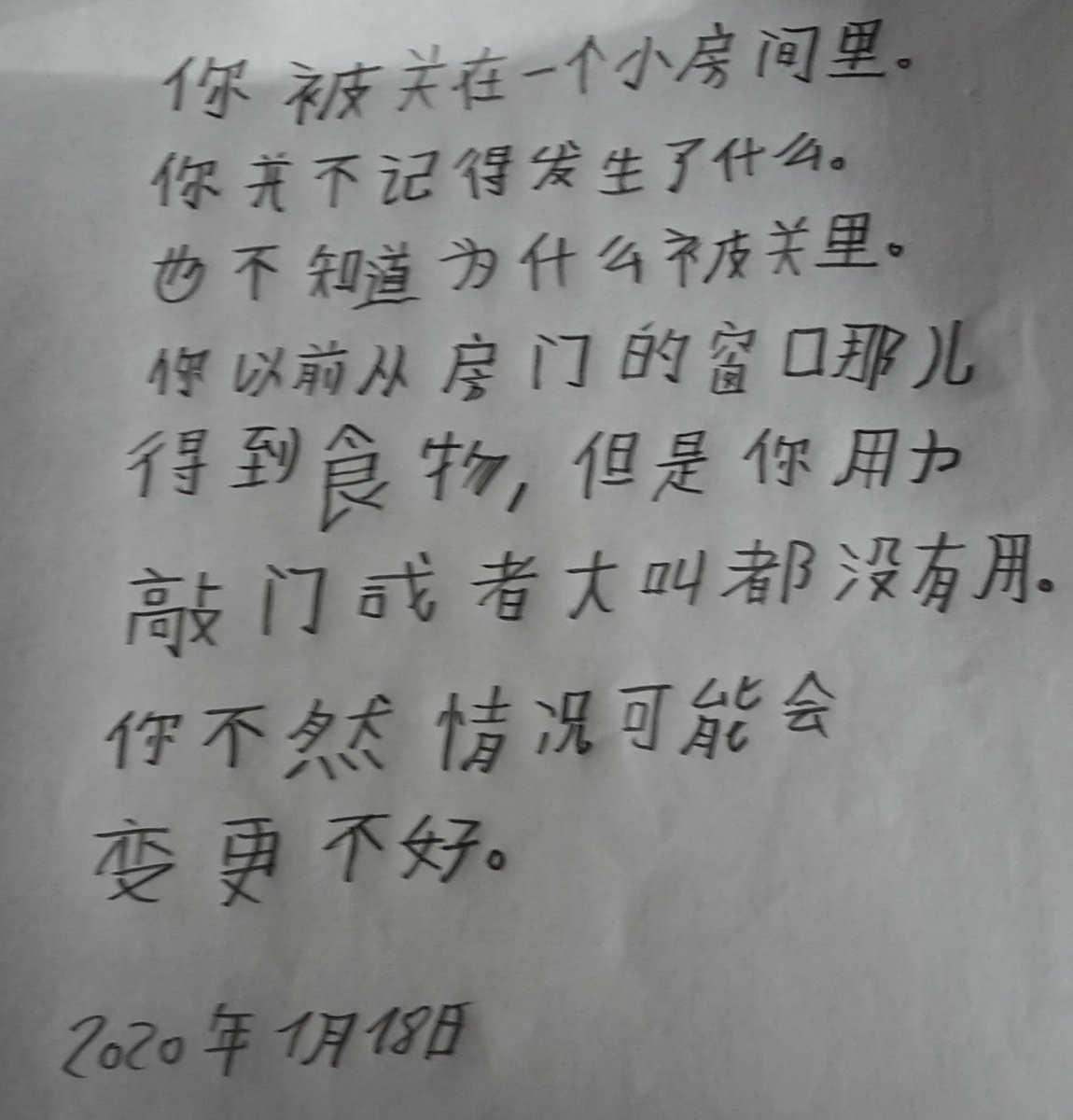
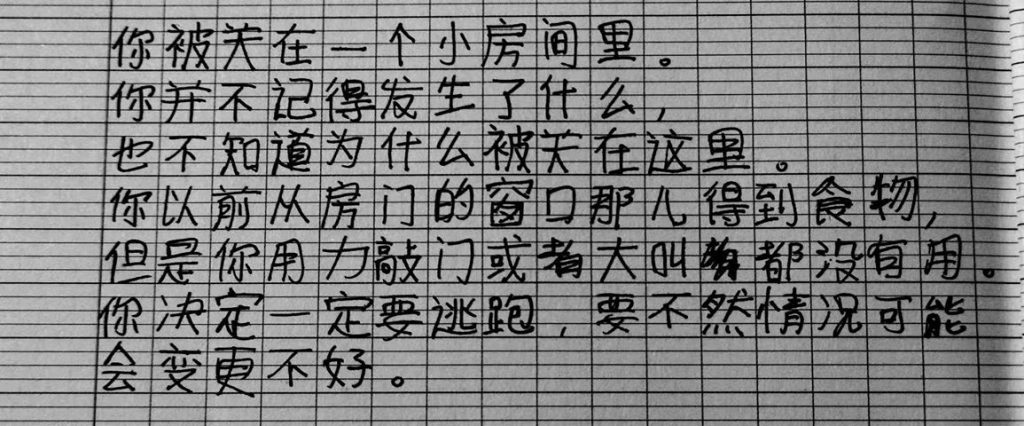




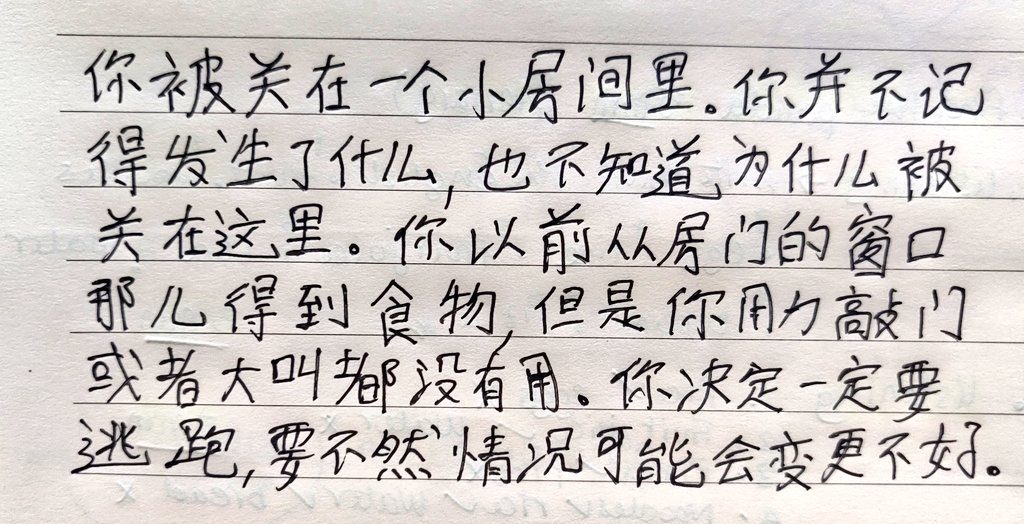
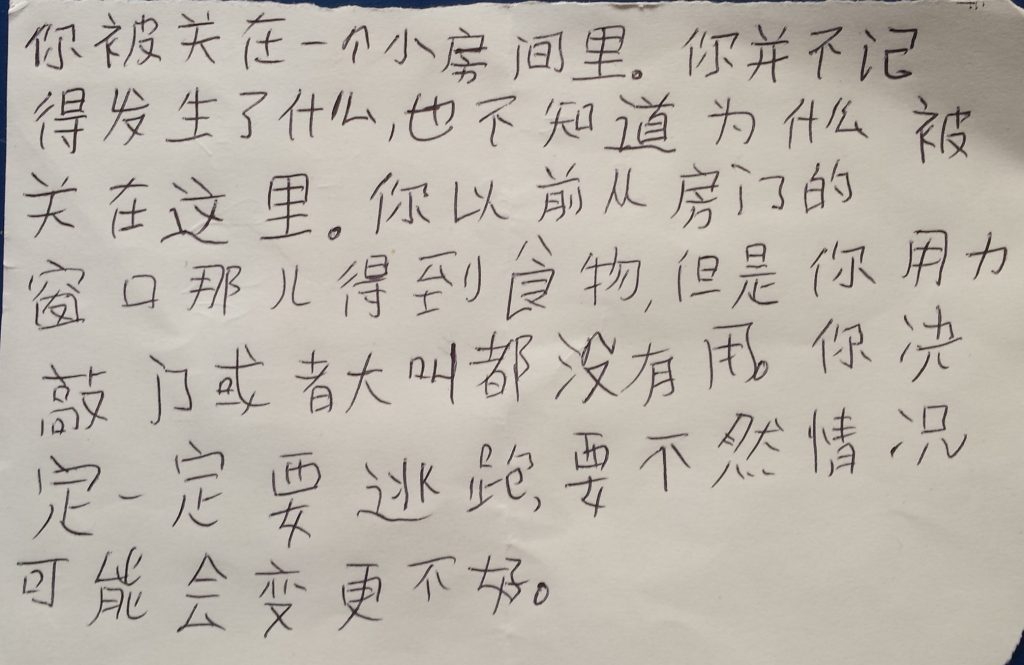
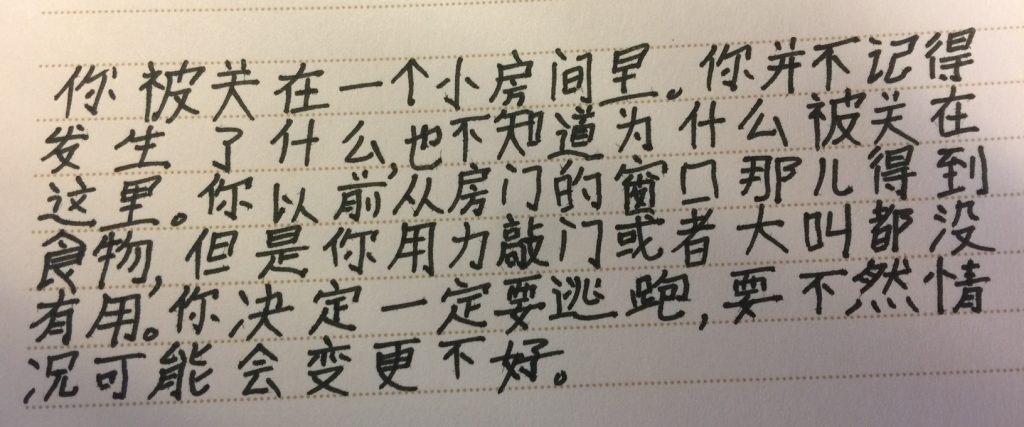
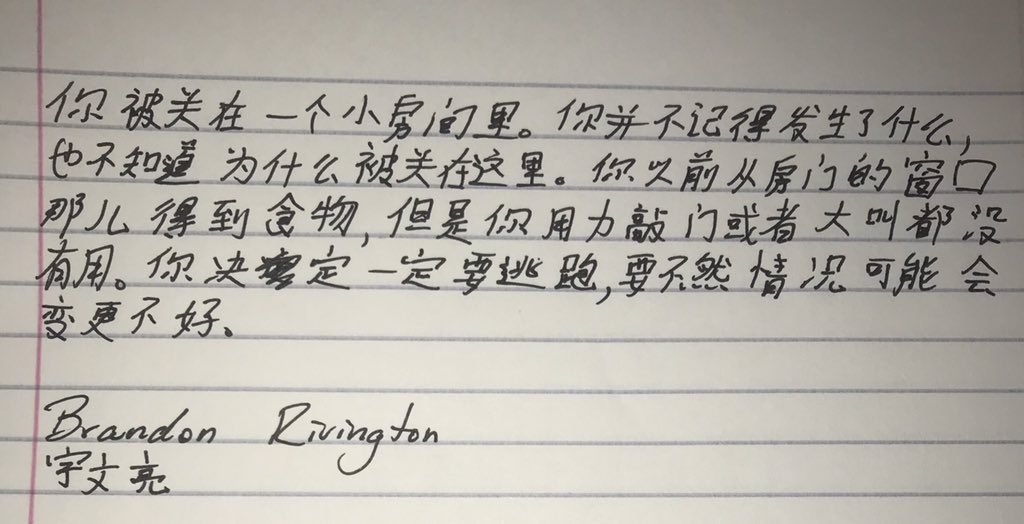
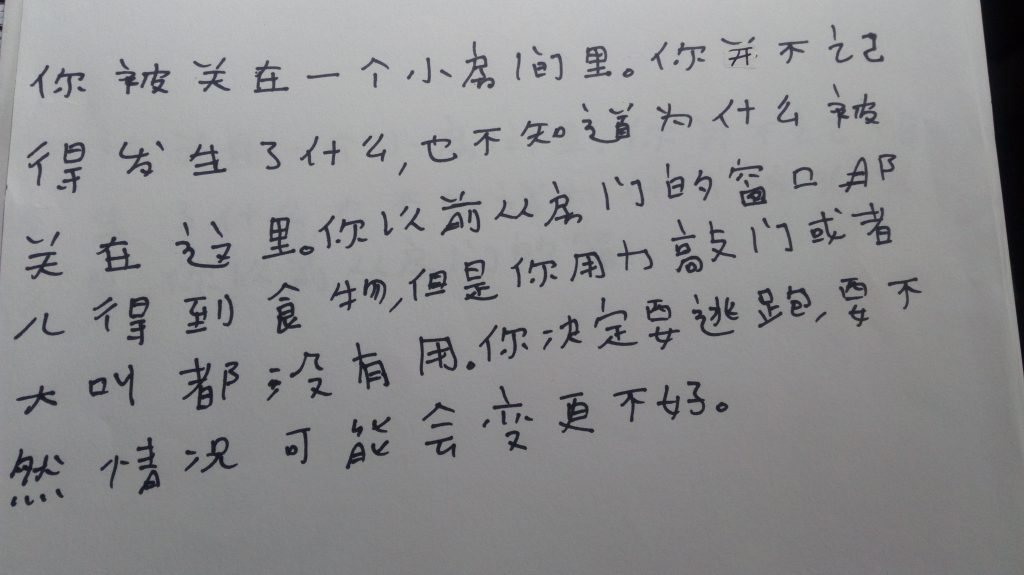
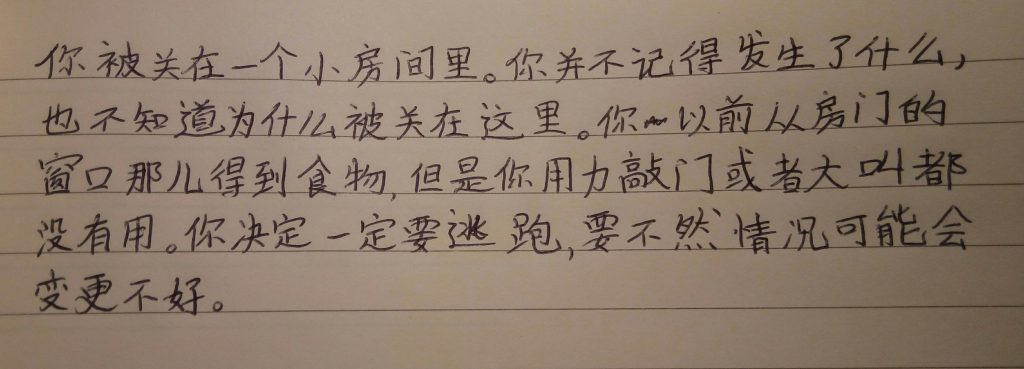

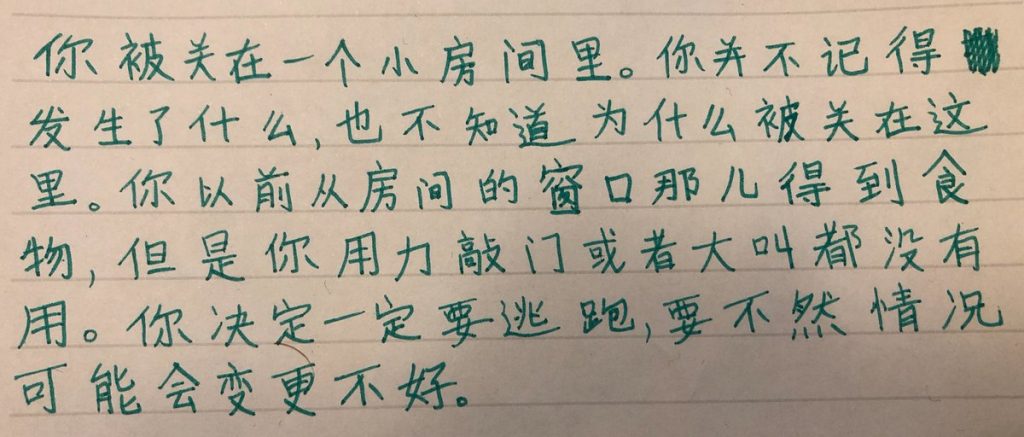
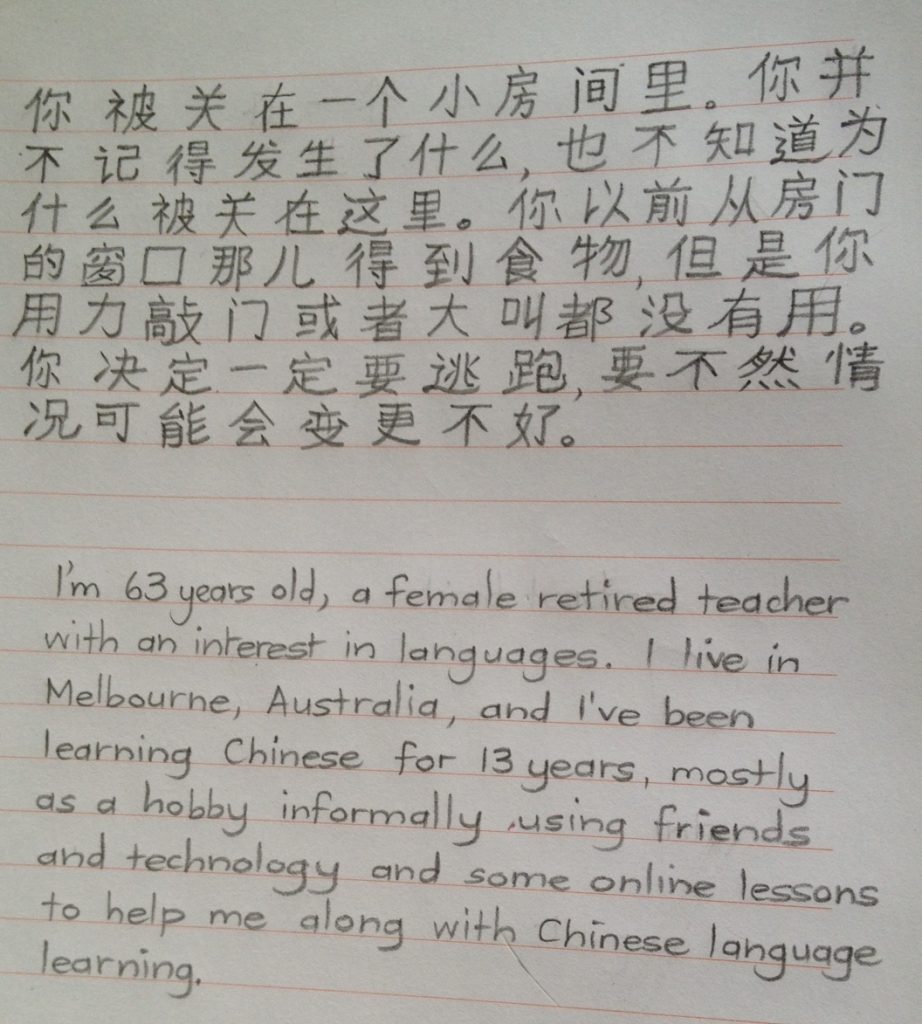
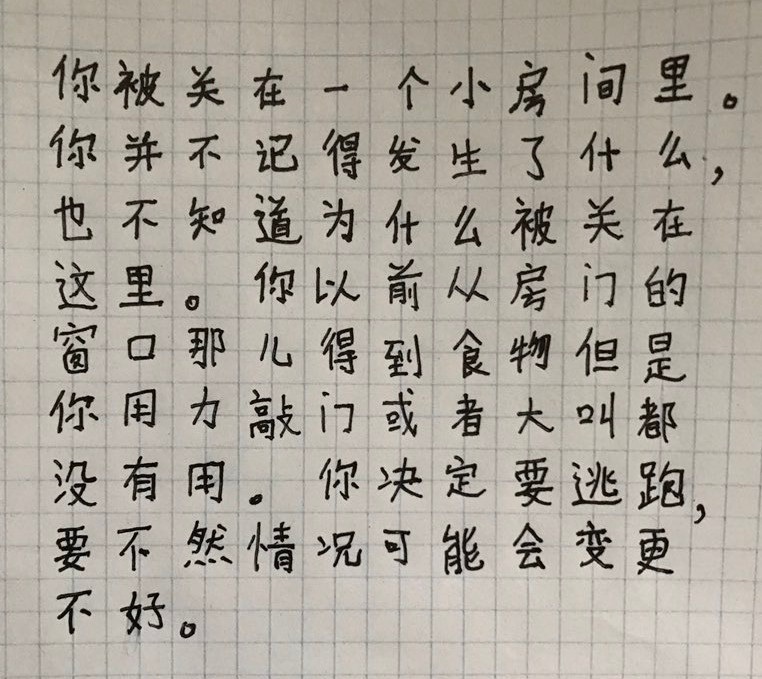

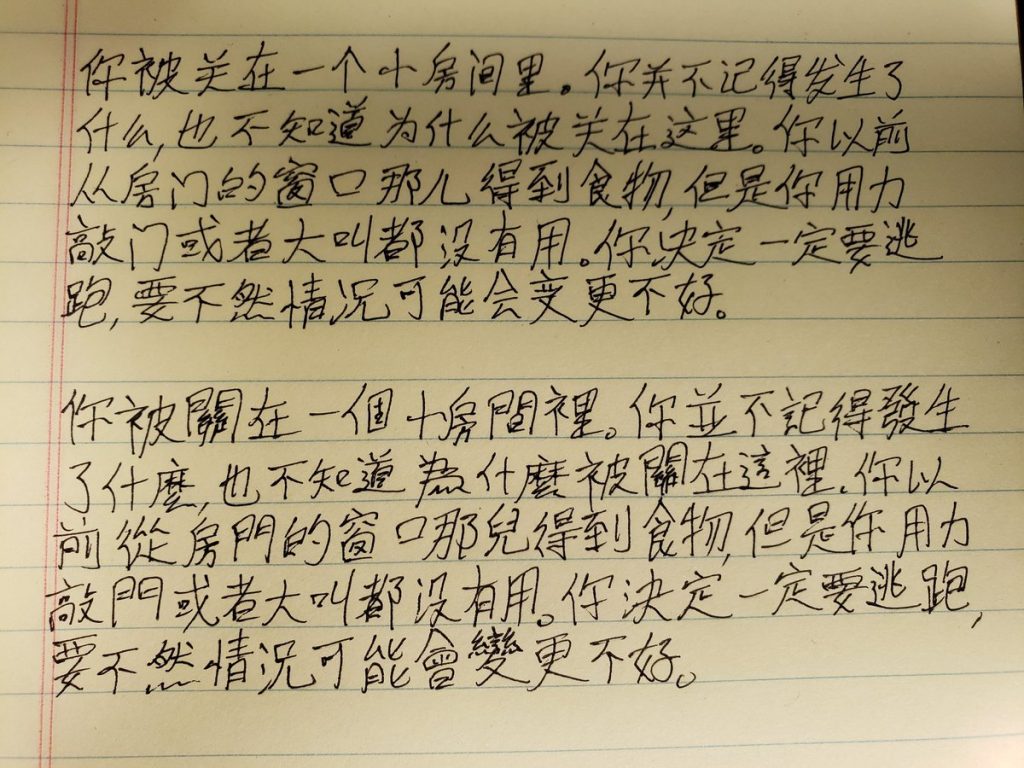
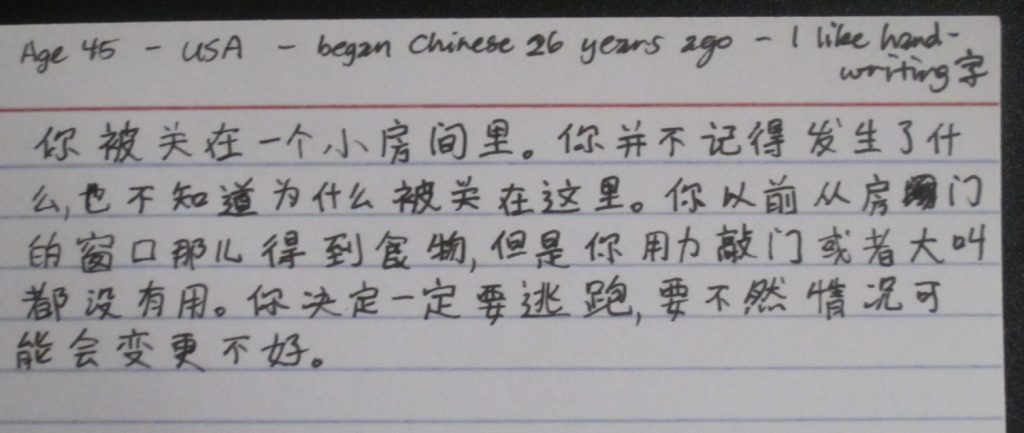

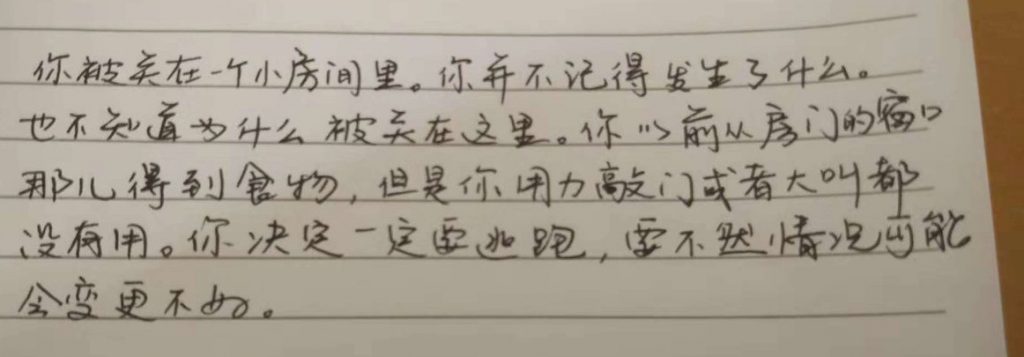
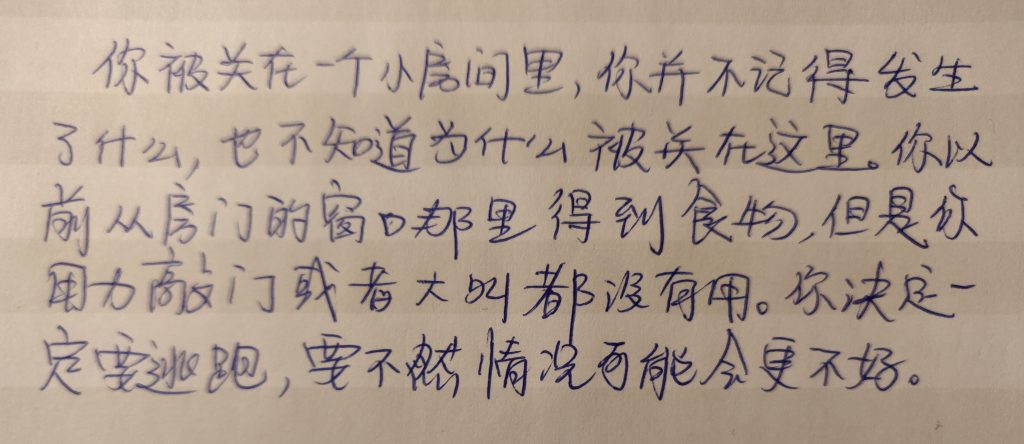

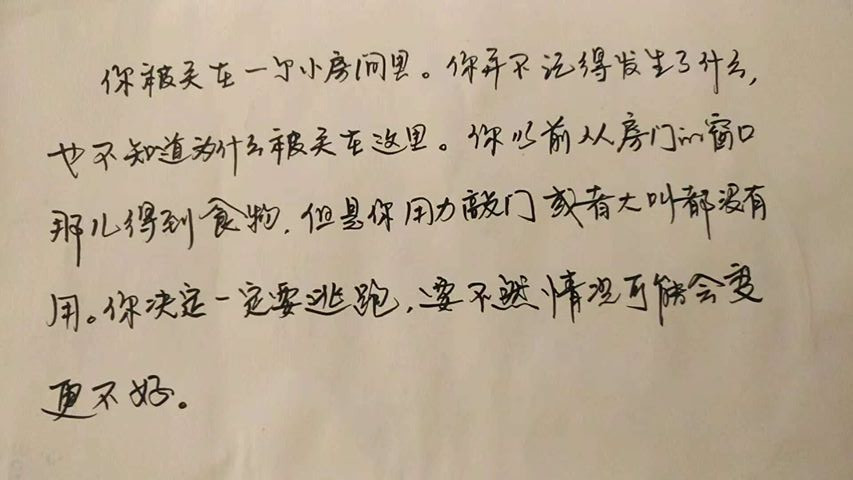


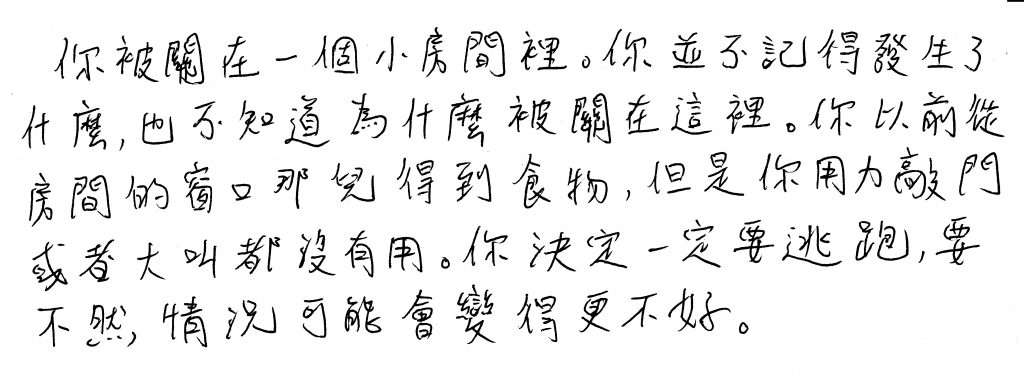


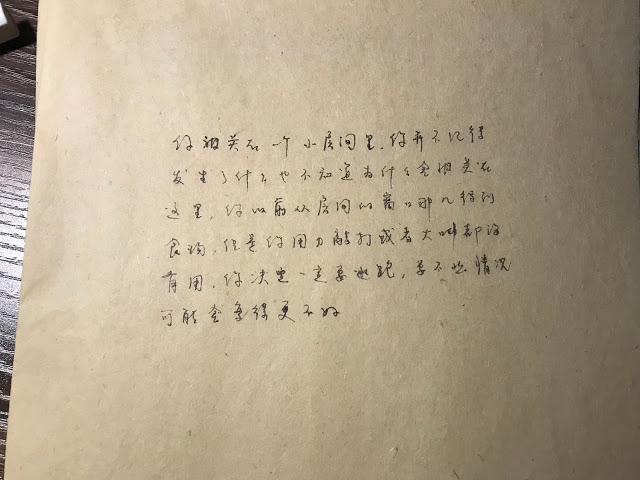

17 comments
The actor 黄轩 posts poems handwritten by his fans on 微博 the blog is called 瞬间MomentX, I find handwritten notes or artistic shop signs very difficult to read
This is fascinating! Thank you so much for this compilation. There’s something very touching about seeing hand-written notes, it’s hard to explain.
Most of the learners’ notes are easy to read, but on the other hand some of the natives’ notes are hard to decipher for the non-native eye. It can’t only be a question of speed, surely…
Thomas Walker is by far the best, in my opinion.
I totally agree. I would be interested to learn his methods. Pen thickness seems to be a major factor. Depending on the day, I can write well with a 0.4mm pen, other days, I need a 0.7mm one.
Thomas Walker’s is awesome – but the Australian teacher lady is really impressive, too (and she’s not working on handwriting grid paper.) Her English handwriting looks exactly like a teacher – she’s obviously used to being very tidy in her writing.
Maybe their chinese handwriting is correlated to their english handwriting. They seem to have similar style.
Yes, that’s a good point. I realised too late that I should have asked people to write the same passage in English as well.
Native here. Yes, our Chinese handwriting and English handwriting (that is, for those of us who can write English) pretty much correlates to each other in style
Age 28, live in China mainland, written by Lamy Safari:
https://igonejack.blogspot.com/2020/01/sample-of-chinese-handwriting.html
Thank you for your submission! I added your writing to the article and I will also mention it on social media, including a link to your page.
Hi, I’m studying in the UK and I have a few people I know from China. I’ve seen what they write a couple of times … it’s some kind of horror. I mean that it is very difficult, I do not envy them. Recently, I read an essay about stereotypes, and still, I will say that they are so true. People who have studied Chinese, tell me how long you have been learning this beautiful language, how long you have been learning to write in Chinese because as far as I understand, one wrong dash and you are writing about something completely different. This is tin, the most difficult language.
Learning to read and write Chinese characters certainly takes a long time, probably longer than learning any other written language. However, we don’t have to exaggerate the difficulty. A misplaced stroke will almost never influence the comprehensibility of what you write. There are specific cases where certain characters differ only in one stroke (position, length, relationship to other strokes), but these aren’t very common, and in context, it’s practically never an issue. That doesn’t make the writing system easy to learn, but it’s not impossible!
As a native Chinese/Cantonese speaker, I can conclude that people who learn Chinese writes better than natives haha
The range of handwriting among the two groups certainly overlaps! I think this is because penmanship is a completely different skill from other aspects of writing (such as composition). I have had beginner student of Chinese who write very good-looking characters from day one, although of course they still struggle with things that require knowledge of characters, such as how long certain strokes should be, which strokes should touch or cross certain other strokes and so on.
These all say the exact same thing, and it doesn’t make sense, or seems like a crazy person wrote it. If you’re going to scam people, put more effort into it.
I’m afraid I don’t understand your comment. They’re all the same because I asked people to write a specific passage; the first subheading even says “Chinese handwriting from 36 people, using exactly the same tex”, so what did you expect? The whole point is to use the same text so people can compare how different people write the same thing. Also, what scam?
I absolutely loved this post! It’s fascinating to see the progression from beginner to native speaker handwriting. The samples are really inspiring and motivate me to practice my own Chinese writing. Thanks for sharing such a valuable resource!